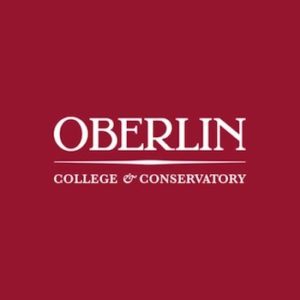
*Oberlin College was founded on this date in 1833. It is a private, coeducational institution in Oberlin, Ohio, southwest of Cleveland.
It was known as Oberlin Collegiate Institute until 1850, when it adopted its present name. Two years after its founding, Oberlin admitted students "without respect to color," becoming one of the first U. S. colleges to do so; before the American Civil War, it was known as a center for antislavery activities. Charles Grandison Finney, professor of theology and president of Oberlin from 1851 to 1866, first proclaimed his doctrine of evangelical Calvinism known as Oberlin Theology.
Oberlin was also the first college in the United States to admit women. Women studied in the "Ladies Department" at Oberlin from the school's founding, but in 1837, four women entered the regular college degree program. After the Civil War, Oberlin’s Black graduates played influential roles in establishing other Black colleges and serving on their faculties. As these colleges grew and other white colleges began admitting Blacks, Oberlin lost its distinctiveness. However, in the 1880s, Mary Church Terrell, Anna Cooper, and Ida B. Wells (all AB, 1884) found it an inspiring place to be during the 19th-century American Civil Rights era. Additionally, the Black Power movement renewed public pride in Oberlin’s early commitment to racial justice, which resurfaced.
This tradition brought on new and successful efforts to increase enrollment and retention. Oberlin College is highly selective and dedicated to recruiting students from diverse backgrounds. The North Central Association of College and Secondary Schools, the National Association of Accredited Schools of Music, and the National Association of Schools of Art and Design. The College is located in the city of Oberlin, with a population of 8,600. Oberlin has two divisions: the College of Arts and Sciences and the Conservatory of Music. The college awards a Bachelor of Arts in the humanities and natural and social sciences.
The conservatory awards bachelor's and master’s degrees in conducting, music education, opera theater, performance on historical instruments, and teaching. Research facilities at Oberlin College include the Allen Memorial Art Museum. Other notable Oberlin graduates include Fanny Coppin, Jonetta B. Cole, John Mercer Langston, William S. Scarborough, Sterling A. Brown, Shirley Graham Du Bois, George T. Walker, and more.
Black American Colleges and Universities:
Profiles of Two-Year, Four-Year, & Professional Schools
by Levirn Hill, Pub., Gale Group, 1994
ISBN: 0-02-864984-2